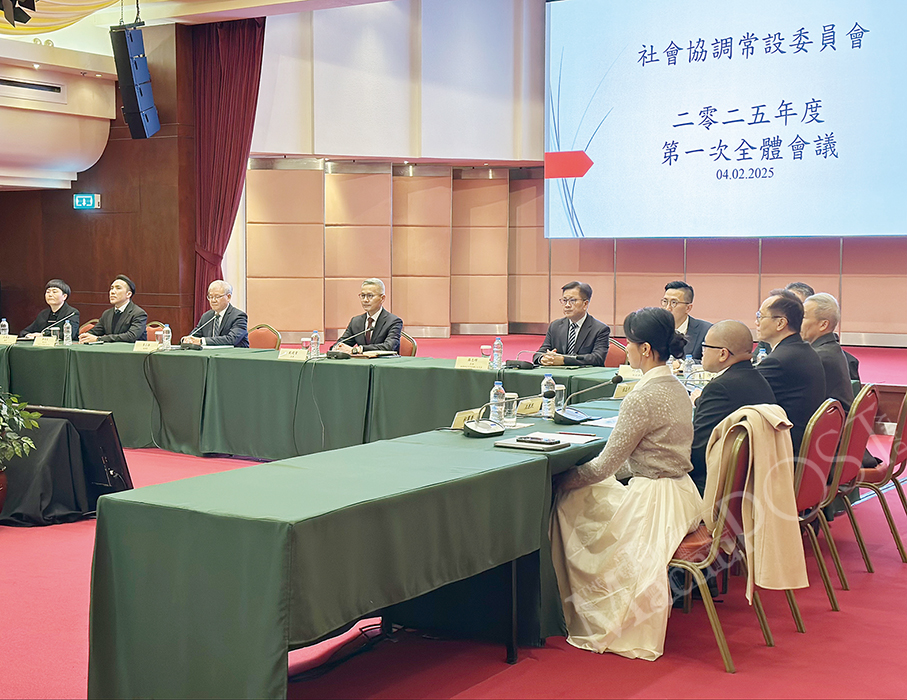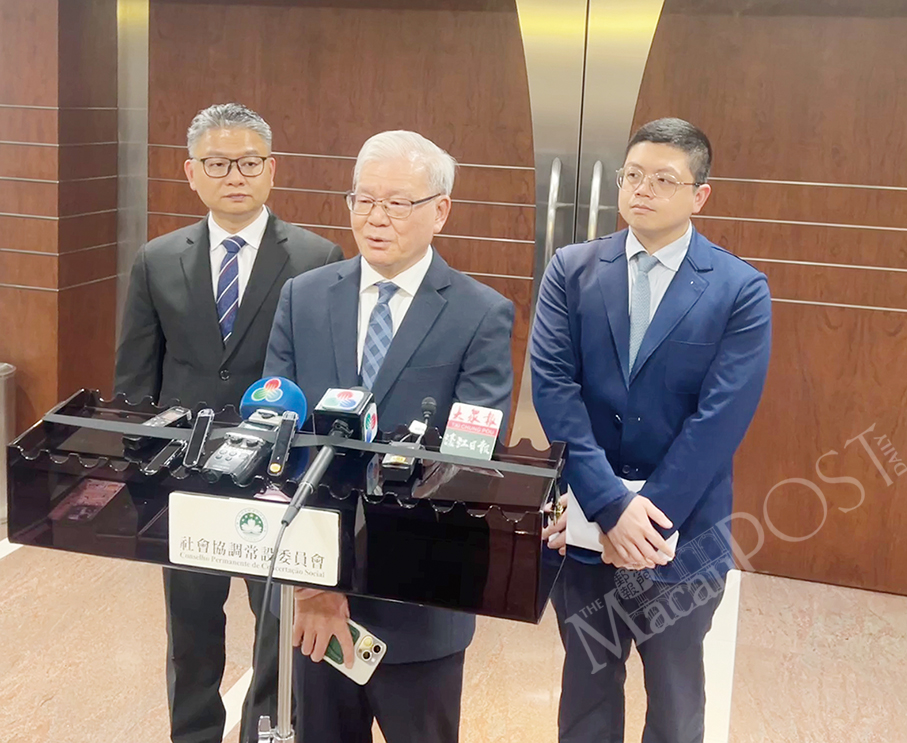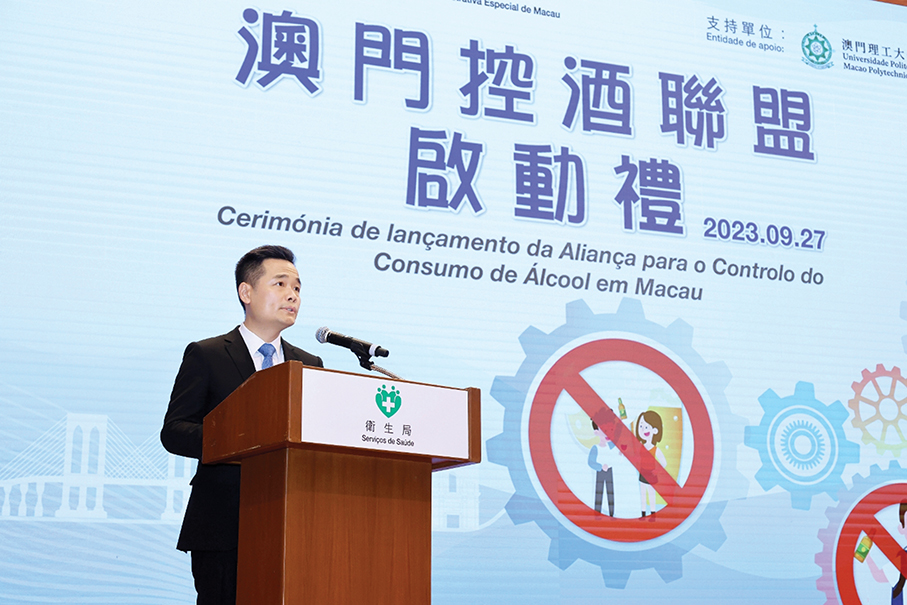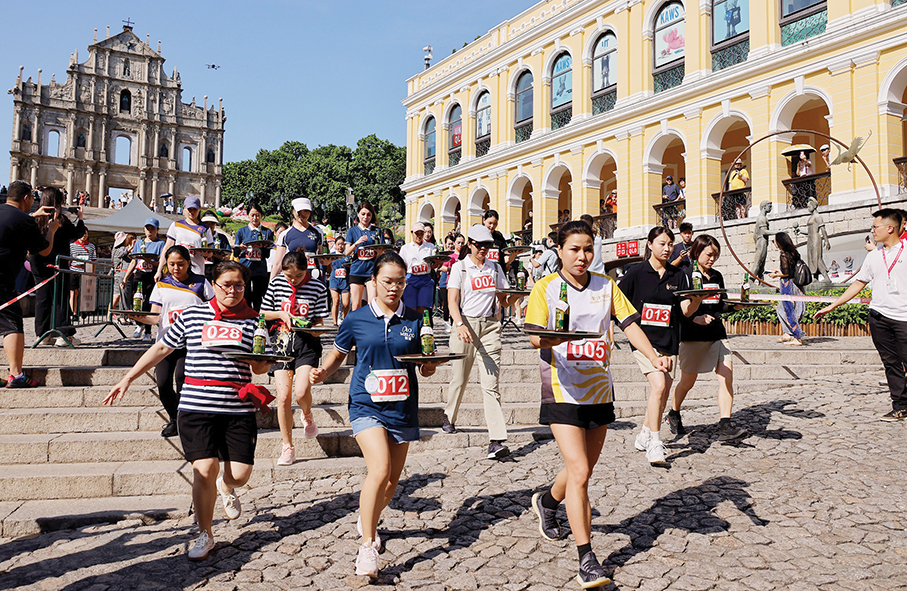Macau’s statutory minimum wage rate is reviewed by the government every two years and adjusted in accordance with the city’s economic development, and Labour Affairs Bureau (DSAL) Director Wong Chi Hong yesterday emphasised the role of the minimum wage to strike a balance between employers and employees, as well as the local social development, reaffirming that “a review does not necessarily mean an upward adjustment”.
Chaired by Secretary for Economy and Finance Anton Tai Kin Ip, the government-appointed Social Affairs Coordination Standing Committee (CPCS) held yesterday afternoon its first closed-door plenary meeting for this year at the World Trade Centre Macau (WTCM) in Nape. Wong made the remarks during a post-meeting press briefing.
Wong said: “…the review of the minimum wage is not necessarily an upward adjustment, but a review, in which we are currently gathering the necessary information and preparing the report [on the minimum wage], in the hope that it can be submitted to the committee for discussion at the earliest possible time,” pointing out that labour rights and interests should take into account the employers’ affordability.
According to local laws and regulations, the city’s minimum wage rate shall be reviewed for the first time two years after the law has come into effect and every two years thereafter. Macau has implemented the Law No.5/2020 Minimum Wage for Employees since November 1, 2020, and has raised the minimum hourly salary rate to 34 patacas from 32 patacas on January 1 last year.
When asked by reporters repeatedly about the minimum wage adjustment schedule, Wong said that this year’s plan focuses only on the review of the minimum wage, “to the best of my ability and in coordination with the Labour Affairs Bureau, and I hope to submit the report to the committee for discussion as soon as possible”, adding that the bureau hoped to find the greatest social consensus by listening to the views of both employers and employees.
According to Wong, in addition to the review of the minimum wage rate, the work plan for this year also includes the limits of compensation arising from work-related accidents and occupational diseases.
‘Minimum wage & various limits on compensation are protection for employees’: labour rep
Speaking to reporters after the about 30-minute-long meeting, a labour representative on the Social Affairs Coordination Standing Committee, Fong Ka Fai, vice-chairman of the Macau Federation of Trade Unions (FAOM – commonly known as Gung Luen in Cantonese), pointed out that the minimum wage and the various limits on compensation serve as forms of protection for employees, suggesting that the government establish an automatic adjustment mechanism, such as by adjusting the city’s minimum wage to match inflation or changes in consumer prices, with the view of further protecting low-income groups from economic hardships. He added: “I think the most important thing is how to improve Macau’s economy”.
According to Fong, the committee’s labour representatives also urged the government during the meeting to increase the minimum days of paid maternity, paternity and annual leave for employees, and enhance the support for small- and medium-sized enterprises (SMEs), making it possible to increase the opportunities for local residents to start their own business and look for employment, so as to promote the development of Macau’s economy.
‘Govt should maintain current minimum wage rate’: business sector rep
Meanwhile, a business sector representative, Vong Kok Seng, vice president of the board of directors of the Macau Chamber of Commerce (ACM), said that the minimum wage should not be tied to the city’s median wage but, instead, it should take into account the unique pressures faced by businesses and the service quality across different industries, suggesting that the government maintain the current minimum wage rate. He added: “An increase in the minimum wage will definitely undermine the business pressure of some industries, such as catering, retail, insurance and real estate, and affect the quality of their services as well as the competitiveness of the city’s tourism”.
Vong also said that the government should put in place a mechanism whereby service providers, notably those with long-term service contracts, could adjust their service charges in accordance with the rise in the statutory minimum wage. He also suggested that the government provide tax exemptions or incentives for employers to adapt to the situation.
According to Vong, during the meeting business representatives expressed concern about the imbalance in Macau’s economic development. Taking the tourism industry as an example, he said that although the number of visitor arrivals to the city has increased, “different districts have different business results, with consumption and revenues not increasing proportionally”, hoping that the government would step up its efforts to create a balanced business environment as soon as possible.
Vong also commented on the review of the various limits of compensation for work accidents and occupational diseases, saying that an annual review might not be necessary due to the absence of much fluctuation and change in the current economic situation.

Secretary for Economy and Finance Anton Tai Kin Ip (centre) addresses yesterday’s plenary meeting of the government-appointed Social Affairs Coordination Standing Committee (CPCS) at the World Trade Centre Macau (WTCM) in Nape. – Photo: Yuki Lei

Labour Affairs Bureau (DSAL) Director Wong Chi Hong (centre) poses during yesterday’s press briefing after the committee’s closed-door meeting at the World Trade Centre Macau (WTCM) in Nape. – Photo: Yuki Lei








